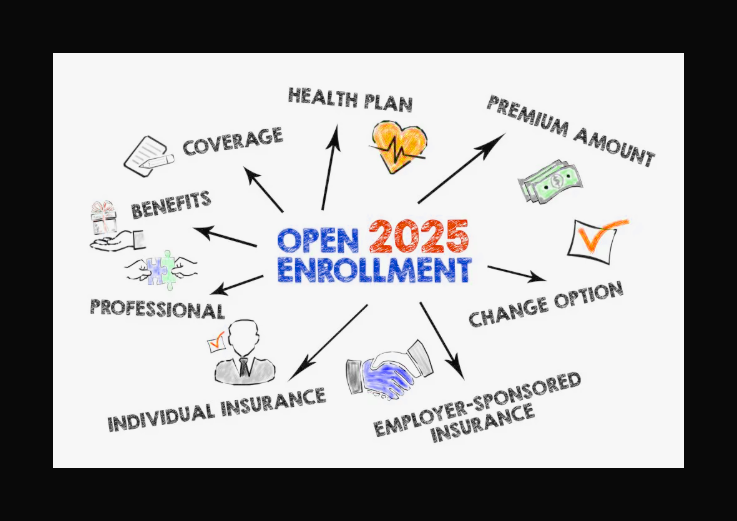Texas Small Business Compliance & HR Checklist (2023–2027)
Texas Small Business Compliance & HR Checklist (2023–2027)Your Step-by-Step Planning Guide Welcome to this comprehensive guide tailored for Texas small business owners, especially those with 1 to...
Texas Small Business Compliance & HR Checklist (2023–2027)
Your Step-by-Step Planning Guide
Welcome to this comprehensive guide tailored for Texas small business owners, especially those with 1 to 150 employees. As we navigate changing state and federal laws related to HR, benefits, insurance, and reporting from 2023 to 2027, this resource will help you stay compliant and build a successful work environment. We’ve broken down each year into actionable steps with clear, simple explanations to make it easy for you to implement the needed changes.
2023 Action Items
- HR & Compliance
- Ensure all city-specific employment policies, such as sick leave, are removed due to HB 2127, promoting uniformity in labor practices.
- Update grooming policies to embrace natural hairstyles in accordance with the CROWN Act (HB 567), fostering a more inclusive workplace.
- Carefully review job responsibilities for minors, as HB 2459 introduces higher penalties for non-compliance.
- Start accommodating pregnancy as a protected condition as mandated by the PWFA (federal law), reflecting your commitment to support all employees.
- Provide private space and adequate break time for nursing mothers as required by the PUMP Act (federal), ensuring comfort and compliance.
- Insurance & Benefits
- Verify that your health plan aligns with the new 12-month contraceptive supply rule established in HB 916, enhancing your benefits offerings.
- Reporting & Administration
- Update your breach notification protocols to ensure the Attorney General is notified within 30 days if a data breach affects 250 or more Texans, as outlined in SB 768.
- If your revenue is $2.47 million or less, you can discontinue franchise tax returns; however, don’t forget to file the Public Information Report as required by SB 3.
2024 Action Items
- HR & Compliance
- Remove any COVID-19 vaccine mandates from hiring policies in accordance with SB 7, reflecting the evolving landscape of workplace safety.
- By March, be sure to post the Workplace Violence Hotline notice (with a poster from the Texas Workforce Commission) in compliance with HB 915.
- All I-9 forms completed remotely during COVID require in-person follow-ups by August 30, 2023.
- Insurance & Benefits
- Assess the optional Paid Family Leave Insurance available under HB 1996 to consider adding value to your employee benefits.
- Prepare for the removal of pre-deductible telehealth services in 2025 if you offer an HSA/HDHP plan.
- Administration & Taxes
- Keep an eye out for 1099-K forms from platforms such as PayPal or Venmo for payments exceeding $600, following IRS changes.
- If using E-Verify, familiarize yourself with the new remote I-9 inspection process being rolled out.
2025 Action Items
- HR & Compliance
- Be prepared for virtual workers’ compensation hearings beginning in June as detailed in HB 2488.
- Monitor hours for part-time staff; those working 500+ hours per year for two consecutive years will be eligible for 401(k) benefits under SECURE 2.0.
- Insurance & Benefits
- Implement auto-enrollment for any new 401(k) plans created after January 1, 2025, as per SECURE 2.0 rules.
- Enroll qualifying part-time employees into the 401(k) plan starting January 1, 2025, adhering to the two-year eligibility requirement.
- Administration & Privacy
- If your business handles consumer personal data, verify whether the TDPSA privacy law pertains to you (most likely exempt if you are a small business).
- Ignore the FinCEN BOI report requirement if your company is U.S.-formed; this rule will be paused in 2025.
2026 Action Items
- Workers’ Compensation & Insurance
- Get ready for a potential surcharge on your workers’ compensation policy under SB 1455, as there may be a slight increase in premiums.
- Confirm that your insurance provider notifies you of any policy declinations as specified in HB 2067.
- Retirement Plans
- Ensure that employees earning over $145,000 who make age 50+ catch-up contributions adhere to Roth rules under SECURE 2.0.
- Confirm by January 1, 2026, that your 401(k) plan enables Roth contributions.
- Lending & Applications
- Prepare to supply demographic information when applying for loans, as new CFPB rules will start phasing in on July 1, 2026.
2027 Action Items
- Retirement Plans
- Inform your employees about the new Saver’s Match program, which offers a 50% match up to $1,000 from the IRS under SECURE 2.0.
- Lending & Applications
- Brace yourself for ongoing demographic data reporting requirements for loan applications (CFPB Tier 2: January 1, Tier 3: October 1).
Planning Tips
- Conduct annual training for managers on updated HR rules related to pregnancy, hairstyle, and other accommodations.
- Review your employee handbook each year with your HR or benefits advisor to ensure it stays current.
- Update your website and notifications if you handle personal data or offer new benefits.
- Communicate any changes, like the new 401(k) Roth rules and benefits updates, to your team.
- Work closely with your vendors—401(k) providers, insurance brokers, and payroll systems—to ensure a smooth transition and compliance with retirement and benefits updates.
This checklist is here to help you minimize risk, avert penalties, and cultivate a positive workplace culture while staying compliant with relevant Texas and federal laws. Embracing these changes not only enhances your operations but also supports a great working environment for you and your valued employees compliant with Texas and federal law.
Helpful Resources for Texas Small Business Owners
- Governor’s Small Business Handbook
– The most comprehensive statewide guide for small business planning, compliance, and resources (updated March 2025).
https://content.govdelivery.com/accounts/TXGOV/bulletins/3d1ca83 - Starting a Business in Texas (Texas.gov)
– Official seven-step roadmap from business planning to licenses and taxes.
https://www.texas.gov/starting-business-texas/ - Texas Secretary of State – Business Resources
– Guidance on filings, entity registration, and trademark basics.
https://www.sos.state.tx.us/corp/do-business.shtml - Business Planning Support – Governor’s Office & SCORE/SBDC
– Templates and mentor-led assistance in crafting business plans.
https://gov.texas.gov/business/page/write-a-business-plan - Texas State SBDC – Startup 101 Tools
– On-demand workshops and resources for essential business startup topics.
https://sbdc.mccoy.txst.edu/Starting-A-Business.html















